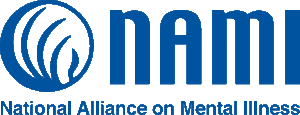July is Bebe Moore Campbell National Minority Mental Health Awareness Month. This month was first recognized in 2008 and is also known as BIPOC Mental Health Month. The purpose of the month is to bring awareness to the unique challenges people of color and underrepresented groups face when it comes to accessing care. Minority groups are statistically less likely to receive mental health services. By recognizing this disparity, the hope is that improvements can be made to the healthcare systems currently in place.
Mental Health Disparities Among Minorities
According to the American Psychiatric Association (APA), mental illnesses affect minority populations more significantly than their white counterparts. The APA reports that people who identify as multiracial are the most likely of any racial or ethnic group to report a mental illness. While those in minority groups experience similar rates of these conditions, only between 22% and 31% receive treatment. In contrast, 48% of whites report access to services.
Barriers to Mental Health Treatment
There are often a number of factors that can impact a person’s ability to receive help for their condition. For racial and ethnic minorities, the most common inhibitors include:
- Lack of financial resources or insurance coverage
- Underrepresentation of racial/ethnic groups in providers
- Increased stigma in minority communities
- Lack of cultural competency in mental health services
Each of these makes it more challenging for underrepresented groups to receive the help they need. Because of this, they are more likely to struggle for an extended period of time even after they begin treatment.
Bridging the Gap in Mental Health Care
While these issues may feel difficult to address, even small changes can have a large impact on who can receive necessary treatment. In fact, there are things people can do on both an individual and collective level.
Reduce Stigma
Whether people are part of a minority group or not, they can work to reduce the stigma that surrounds mental illness in all populations. Creating environments where people feel comfortable talking about their challenges creates an opportunity for open discussions about these disorders.
Become Culturally Informed
If people commit to learning about both their own culture and others, this promotes understanding across ethnic and racial groups. Understanding where another person is coming from helps people better advocate for each other’s needs.
Advocate for Change
Advocating for large-scale change can feel daunting, but change happens when people come together for a cause. Because barriers are often tied to finances or insurance, better funding for mental health services and training programs can expand their reach.
Culturally Informed Mental Health and Addiction Treatment
At Rising Roads Recovery, our priority is providing culturally informed mental health and addiction treatment for women. Our clinicians work to understand the unique experiences of every woman in our center, so we can provide individualized care for our clients. Because substance use disorders often co-occur with mental illness, we offer a dual diagnosis program to address both conditions together.
Recovery doesn’t end after treatment, so we offer life skills classes and a comprehensive aftercare program to help women transition back into their normal routines. If you’ve struggled to find a treatment center that prioritizes your cultural experiences and advocates for your needs, Rising Roads is here for you. Contact us today to learn more about our services.
Additional Resources:
- National Alliance on Mental Illness – History of Minority Mental Health Awareness Month
- American Psychiatric Association – Mental Health Disparities: Diverse Populations





